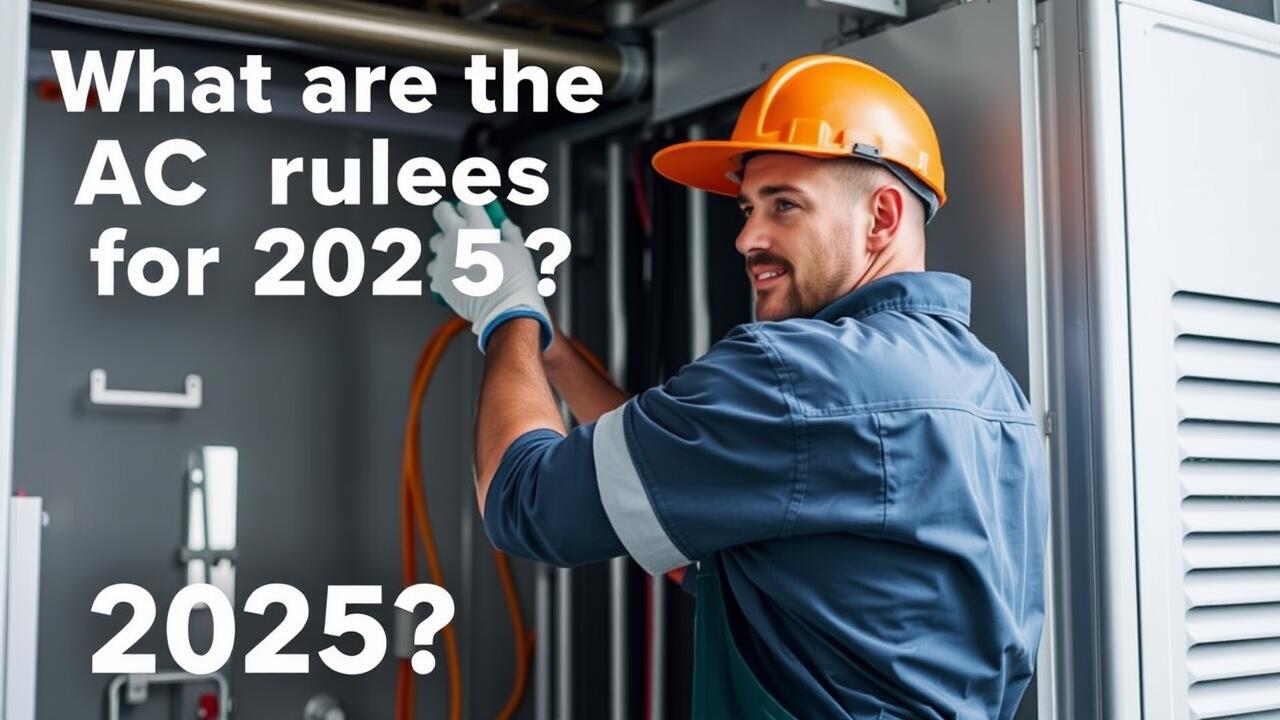What are the new AC rules for 2025?

Table Of Contents
Consumer Implications
The new regulations set to be implemented in 2025 will significantly impact homeowners and their choices regarding air conditioning systems. Consumers will need to consider the efficiency ratings of their units, as stricter standards will likely make some older models obsolete. This means homeowners may face higher replacement costs or the need to upgrade before their units fail. They will also need to factor in potential savings from increased energy efficiency over the long term.
Additionally, enhanced regulations may encourage manufacturers to innovate, resulting in improved technology and features. Homeowners could expect a wider range of energy-efficient products designed to minimize environmental impact while enhancing comfort. However, initial investment costs associated with acquiring these new systems might deter some consumers. Balancing upfront expenses with the long-term benefits will be crucial as people navigate their options in the changing market landscape.
What These Changes Mean for Homeowners
Homeowners will likely experience a shift in the way they purchase and maintain air conditioning systems. The new regulations mandate higher energy efficiency standards, encouraging residents to opt for units that consume less energy while providing adequate cooling. This transition could lead to initial higher costs for new systems. However, the long-term savings on energy bills may offset these expenses, making it a financially sound decision over time.
Additional adjustments may also be needed for existing systems. Homeowners could face the necessity of retrofitting older units to meet the new standards. This may require investing in upgrades or even replacing older models that do not comply. These changes represent an opportunity to enhance overall home comfort and efficiency, but they also emphasize the importance of planning and budgeting for potential expenses associated with compliance.
Environmental Considerations
The impending changes in air conditioning regulations are set to play a significant role in environmental protection. By imposing stricter efficiency standards, the new guidelines aim to reduce energy consumption in cooling systems. These alterations not only enhance the performance of HVAC units but also lead to lower greenhouse gas emissions. As energy usage decreases, homeowners will be contributing to a more sustainable ecosystem.
The updated rules encourage the adoption of refrigerants with lower environmental impacts. Conventional refrigerants often have high global warming potential, which exacerbates climate change. By facilitating a transition to eco-friendlier alternatives, these regulations promote technological advancements and innovation in the HVAC industry. This shift aligns with broader sustainability goals and ethical responsibility toward the planet.
Reducing Carbon Footprint through Regulations
The upcoming regulations aim to significantly lower the carbon emissions associated with heating and cooling systems. By mandating the use of more energy-efficient air conditioning units, the rules encourage manufacturers to innovate and produce equipment that has less environmental impact. This shift not only benefits homeowners by potentially reducing their energy bills, but it also aligns with global efforts to combat climate change.
These changes are designed to drive the adoption of refrigerants that have a lower global warming potential. By setting stricter standards, regulators are pushing for a transition away from substances that contribute to greenhouse gas emissions. The focus on improving air conditioning systems will result in better performance while minimizing harm to the environment, creating a more sustainable future for energy use in residential and commercial spaces.
Timeline for Implementation
The phased rollout of new air conditioning regulations will begin in 2025, with manufacturers required to comply with updated efficiency standards. This timeline allows for the gradual adaptation of production processes and the introduction of innovative technologies that meet the new benchmarks.
Homeowners will notice the effects of these regulations as they replace or upgrade their systems. Many may have until the end of 2025 to replace older units, ensuring they take advantage of more efficient models before stricter standards come into force. This timeline not only benefits consumers in terms of energy savings but also promotes the adoption of environmentally friendly practices.
Phased Rollout of New Rules
The implementation of new air conditioning regulations is designed to occur in phases, allowing manufacturers, contractors, and consumers to adapt gradually. This method creates a structured timeline that ensures all stakeholders stay informed and aligned with the evolving standards. Each phase introduces specific requirements that must be met, facilitating a smoother transition to more energy-efficient practices and technologies.
As the phases progress, homeowners will see varying timelines for compliance based on the type and age of their existing systems. This approach grants individuals the time needed to consider upgrades and make informed decisions about their home’s HVAC systems. Educational resources will also be provided to assist consumers in navigating the changes and understanding the benefits associated with new technologies.
FAQS
What are the new AC rules being implemented in 2025?
The new AC rules for 2025 involve updated energy efficiency standards aimed at reducing energy consumption and enhancing environmental sustainability for air conditioning systems.
How will these changes impact homeowners?
Homeowners may face the requirement to upgrade their current air conditioning systems to meet stricter efficiency standards, which could lead to higher initial costs but ultimately lower energy bills and improved comfort.
What are the environmental considerations associated with the new AC rules?
The new regulations aim to significantly reduce the carbon footprint of air conditioning systems, contributing to overall climate change mitigation efforts by promoting the use of more efficient and eco-friendly technologies.
When will the new AC rules take effect?
The new AC rules will be implemented in a phased rollout starting in 2025, with specific timelines for compliance varying based on the type of equipment and the region.
Will there be financial incentives for upgrading to compliant AC systems?
It is anticipated that there may be various financial incentives, such as rebates or tax credits, to encourage homeowners to upgrade to more energy-efficient air conditioning systems in line with the new regulations.